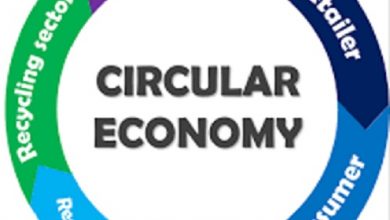What is work ethics examples and How to strengthen
What is work ethics
Ethics can be understood as the set of values or principles that guide human beings in their ways of behaving and behaving. In this article we will provide the information about work ethics.
Values that can be adopted by an individual, a group or a society.
Still, if we consider the etymology of the word, ethics comes from êthos , which means habits and customs, and comes from ethos , which means shelter or abode.
With that, we are facing the foundations that keep a house standing, and this house can be society in general or relationships in the work environment .
Putting all these ideas together, we arrive at a concept of work ethics as the set of principles and values that guide the conduct of workers and employers and that sustain the good relationship between all.
Therefore, we talk about something that is important for impacting the construction of professional relationships.
They, in turn, will impact motivation, productivity, teamwork, the employer brand , organizational culture and the climate in the work environment.
Top examples of work ethics
Examples are great so you can more clearly understand what work ethic is.
Therefore, we are going to present the main principles that guide the conduct and relationships between the agents that participate in the universe of an organization.
1-Integrity
“Oh, but so-and-so couldn’t have acted like that because it’s unethical!” . In some context, it is very likely that you have already heard, spoken or thought of this phrase.
Integrity is precisely the quality of someone who has ethics or who acts according to this precept.
Thus, having integrity is having the ability to act ethically at work , because it is like having an internal engine that drives us to observe principles, respect rules and maintain proper conduct.
The absence of integrity basically prevents a person from having an ethical stance in any sphere, so this is a quality that should be valued.
It is also worth mentioning that a person of integrity is less likely to make or spread gossip, speak ill of co-workers and have any other conduct that harms relationships and the organizational climate .
2-Responsibility
Something employers are looking for and, in fact, we all hope for is people who are capable of honoring the commitments they make.
No company wants to be left in the lurch, no team wants to go through this, just like no colleague.
Thus, another example of work ethics is responsibility, a characteristic that leads professionals to:
- fulfill the tasks assigned to them;
- respect deadlines;
- communicate unforeseen events;
- take care of the company’s assets;
- assume failures and their consequences;
- respect the organization’s acronyms and more.
3-Humility
Since we talk about admitting failures, having a work ethic means knowing how to recognize mistakes and face them head on . Something intrinsically linked to responsibility.
In this regard, we have already taken the opportunity to point out that it is easier for an employee to assume that he has made a mistake when the company’s environment is not threatening.
You may already be aware of guidelines on how negative feedback should not be given in public by name.
In other words, if a professional made a mistake, the manager can point out the problem to the team without naming names or talking to the person responsible for the particular situation.
This is because, no matter how humble a person is, they can feel extremely embarrassed to report a failure if they fear that, as a consequence, they will experience some humiliation.
Thus, the company has a role in creating the right climate for mistakes to be seen as an opportunity for growth and this is something that, in addition to other agents, involves HR.
4-Coherence
In job interviews, there are recruiters who ask candidates about their main strengths, in addition to asking about shortcomings.
We remember this because we know that there are stories of professionals who said something during the interview and were not able to prove it afterwards.
Popular wisdom teaches us that talking is easy, but having coherence and acting according to the ideas and positions one defends or claims to have is not so simple.
Coherence appears, therefore, as one of the examples we have about work ethics, because professionals need to be able to align their discourse with their actions .
It is easy to say that you have integrity, that you respect your colleagues, the company and that you are also responsible. However, it is necessary to reaffirm this professional conduct on a daily basis.
5-Respect
Respect is a basic principle of ethics in any sphere where the subject is raised, which includes conversations about ethics at work.
Although there is a sector formed by only one employee, this professional is still linked to the entire ecosystem of the organization.
Therefore, respect must permeate the actions of each and every individual who is linked to the company.
To have respect is to abandon an individualistic posture and recognize yourself as part of the whole .
The individual needs to have the responsibility to take care of his own tasks, but without forgetting that he is part of a team, of a community in the organization.
A professional needs to respect the work of the other, even though he believes that, if he had the opportunity, he would do it differently and better.
Not to mention issues that are even more basic that make up the notion of civility and that include not mistreating people, not humiliating, not discriminating and so on.
6-Empathy
We imagine you’ve heard a lot about empathy in the last few years, right?
Although it has become a “fashion”, empathy really has a very important meaning for human relationships and fits among the principles of work ethics.
An empathetic person is the one who has the ability to put himself in the other’s shoes, something that depends on understanding the emotions, postures and visions of the other, in addition to understanding the other’s reality.
Empathy at work goes hand in hand with respect, because it allows a professional to understand the way others have to conduct their tasks and face a situation.
What’s more, empathy allows employers to consider the reality, expectations and demands of their employees to make more strategic decisions.
This is something that favors talent attraction and retention , productivity and more.
7-Equity
Last but not least, we need to talk about equity to complement the main examples of work ethics.
Ethics only exists with equality , and that’s what leads us to talk about equity, a concept that you may already know, but don’t understand clearly yet.
Shedding light on the concept , equity “understands how fair it is to provide equal results for different people by treating different people differently”.
In other words, equity recognizes that different people may need different conditions for equality to be a reality.
Something that can also be understood as giving unequal treatment to unequal in search of equality.
Thus, equity is a principle that creates an egalitarian environment in which there are neither privileged nor privileged .
A factor that should not be observed only in employees, but in management and in the organizational culture itself.
Why Cultivate Work Ethic?
Still in the introduction of this post, we point out that it is natural to expect that ethics at work will be respected.
We live in society, we are familiar with the rules of conduct that permeate human relationships, so the idea is that it would suffice to apply them to the professional environment.
We are talking about human beings, however, and we are complex by nature. Otherwise, maybe no one would have to deal with the consequences of a lack of work ethic, don’t you think?
Ethics needs to be cultivated, because we are influenced by both what is positive and what is negative.
And this observation applies to everyone, from the outsourced employee to the member of senior management.
When a company is created, it is guided by the definition of mission, vision and values . Values are the principles, the way of acting, that is, the conduct of the organization that will lead it to fulfill its mission and achieve its objectives.
If these values need to be observed even as part of the organizational strategy, so must work ethics.
We are talking about something that needs to be cultivated so that everyone’s conduct is aligned with the company’s principles .
Without this attention, the probability that one or more employees will act in disagreement with the norms, with internal morals, increases.
Something that can influence others and the environment, having negative impacts on a team or the organization as a whole.
In other words, cultivating ethics at work is to create more favorable conditions for people to maintain appropriate conduct as employees of the company, in their professional relationships.
1-Consider that the obvious needs to be said
Professional ethics is something that workers develop based on their principles and what they learn as they gain experience.
Part of this learning comes from guidance and part comes from experiences. A company can only gain if it shares its values with its employees and talks about what is expected of each of them in their conduct .
Among the principles we present are empathy, respect and equity .
Important in any context, all these principles are fundamental for companies that want to play their part in favor of diversity and inclusion .
We’re saying this because when your company breaks through barriers, it needs to reinforce and even teach issues that seem obvious but aren’t necessarily so.
If your organization decides to hire PCDs , for example, in addition to preparing the physical space, it needs to educate all its staff and senior management to learn about the most ethical and appropriate conduct.
We take as an example a reality that does not exist in all companies, but know that reinforcing ideas about expected behaviors can be valid in any situation .
2-Bet on the promotion of honesty
Taking the hook, internal communication is a great ally in promoting honesty and other ethical principles.
Positive feedback can be used to reinforce behaviors and influence employees.
We point to honesty in a special way, because it has to do with other principles that we raised earlier: responsibility and humility.
It is important to keep in mind that the idea is not to promote honesty only between teams.
Leaders and senior management must also act ethically at work, especially considering the power of example.
3-Value commitment
It is truly inappropriate for managers to elect “darlings”, that is, to show a predilection for this or that employee on their team.
This does not, however, prevent the commitment of employees from being valued.
Often, what companies want is to run away from problems and, for this reason, it can happen that the focus is completely turned to employees who are unproductive, unmotivated or even involved in more serious issues.
Although all this needs to be worked on, it is interesting that what is positive is also recognized by the company.
The idea is not to put pressure on others or to generate unhealthy competition.
Differently from that, valuing commitment is to show that the company perceives those who have professional ethics stand out in some way, something that can inspire the reproduction of this behavior.
4-Bet on transparency
A company doesn’t have to be an open book. There are issues that concern only senior management and others that are specific to each sector, for example.
Betting on transparency does not mean revealing absolutely everything, but creating an environment where there is trust .
This is because the lack of information about a situation can generate distrust. It, in turn, can open space for speculation and gossip that will affect professionals and teams.
Side conversation, when it spreads rumors, is negative and unethical. Therefore, the interesting thing is that the company promotes an environment in which there is no room for this.
Want another example of work ethics and transparency? Let’s talk point control, then.
In case you are not familiar with the subject, we have a short video explaining the types of journey control. Check out!
In the past, the lack of security in time recording systems made both employers and workers suspicious.
The employer feared that the employee would lie on the records to try to earn overtime. The employee, in turn, was afraid that the employer would change the records to not pay them properly.
5-Develop a culture that encourages learning
The evolution of the job market is commonly cited as reasons for the company’s culture to encourage learning .
The idea is for employees to improve and learn new skills to meet new demands with excellence.
It turns out that this culture has much more to offer employers and workers alike.
For mistakes to be seen as an opportunity, the company needs to reinforce the idea that failures happen and that everyone can learn from them and, of course, contribute to making this happen.
6-Encourage self-awareness and respect
As you may already know, lectures, courses and other educational resources can be used for employees to learn or update their knowledge on topics intrinsic to their work.
These resources can also be used to promote topics on mental health, emotional intelligence , inclusion, diversity, teamwork and soft skills development .
We are talking about a series of learnings that favor self-knowledge and understanding of the other.
This helps people to be able to maintain coherence and assume an ethical stance, in addition to respecting others .
7-Reinforce the importance of respecting the rules
Yet, as we indicated earlier, work ethics and morals are related. With this, internal communication can be used to reinforce respect for company rules.
This means ensuring that moral obligations are respected through one’s ethical conduct.
In other words, make sure that everyone has the guidance they need to know how they should act to respect the organization’s rules.
This can be done through the employee handbook and also through memos, reports, institutional videos and other pieces of informative material.
It is even possible to have a code of ethics at work that includes principles and rules.
This type of content will reinforce respect for the privacy of colleagues, company secrecy and other moral issues that are anchored in ethical conduct.



